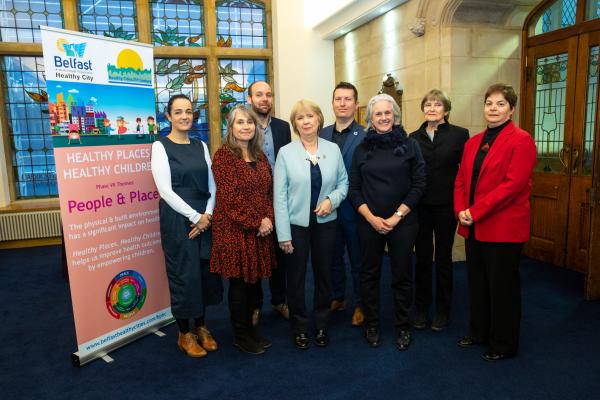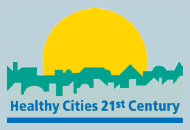Placemaking for a Healthier Belfast: Creating Child Friendly Environments

By 2050 70% of the world’s population will live in urban areas and 60% of those urban dwellers will be under the age of 18. These figures, produced by UNICEF, mean it is more important than ever that the built environment is designed and managed to meet the needs of children.
Child friendly placemaking is about planning authorities, and other professionals working to shape the built environment, to consider and engage with children as a way to create places that suit all ages and support healthy childhood development. Such an approach goes beyond the protection of basic children’s rights and promotes a wider definition of children’s wellbeing. Within Northern Ireland, much scope still exists to build upon commitments made within the Children’s Services Co-operation Act (2015) and to promote Child Friendly environments through Community Plans and Local Development Plans.
The Placemaking for a Healthier Belfast: Creating Child Friendly Environments aimed to inform policymakers, planners and health professionals on:
- the link between the built environment and health and wellbeing;
- children’s and young people’s views on and priorities for the built environment;
- the benefits of engaging with children and young people when shaping the built environment;
and to showcase:
- how child-friendly built environments can contribute to a more healthy, inclusive and sustainable built environment for all;
- relevant local and international good practice examples.
The NI Commissioner for Children and Young People, Koulla Yiasouma, opened the seminar emphasising that children and young people in the city have important contributions to make on how Belfast looks and works.
Two international speakers, Dr Maria Nordström from the Swedish University of Agricultural Sciences and Dr Kate Bishop, University of New South Wales spoke about their experiences of creating child friendly enironments.
Belfast Healthy Cities also launched a new publication Placemaking: Engaging Children and Young People aimed at planners and policy makers. Chris Karelse described how the key message of this publication is that engaging children and young people offers real benefits to all parties involved in the placemaking process
James Hennessey, Expert Advisor from the Ministerial Advisory Group for Architecture and the Built Environment, presented on new guidance on child centred planing which is currently being developed by the Ministerial Advisory Group.
Following the plenary session, two workshops took place in parallel.
Workshop 1, Adopting Child Friendly principles with policy was chaired by Gavan Rafferty, Ulster University and has presentations from Sweden and Wales. Maria Nordström spoke about Child impact assessment in Sweden; and Marianne Mannello, from Play Wales about The Welse Play Sufficiency Duty.
Workshop 2, Promoting a Playful City was chaired by David Stewart, Chair of Belfast Healthy Cities. Denise Cahill from Cork Healthy Cities presented on Cork City's Playful Paradigm Programme. Angela Stallard and Alan Heron from Playboard NI presented on the Northern Ireland Playshaper Programme.


